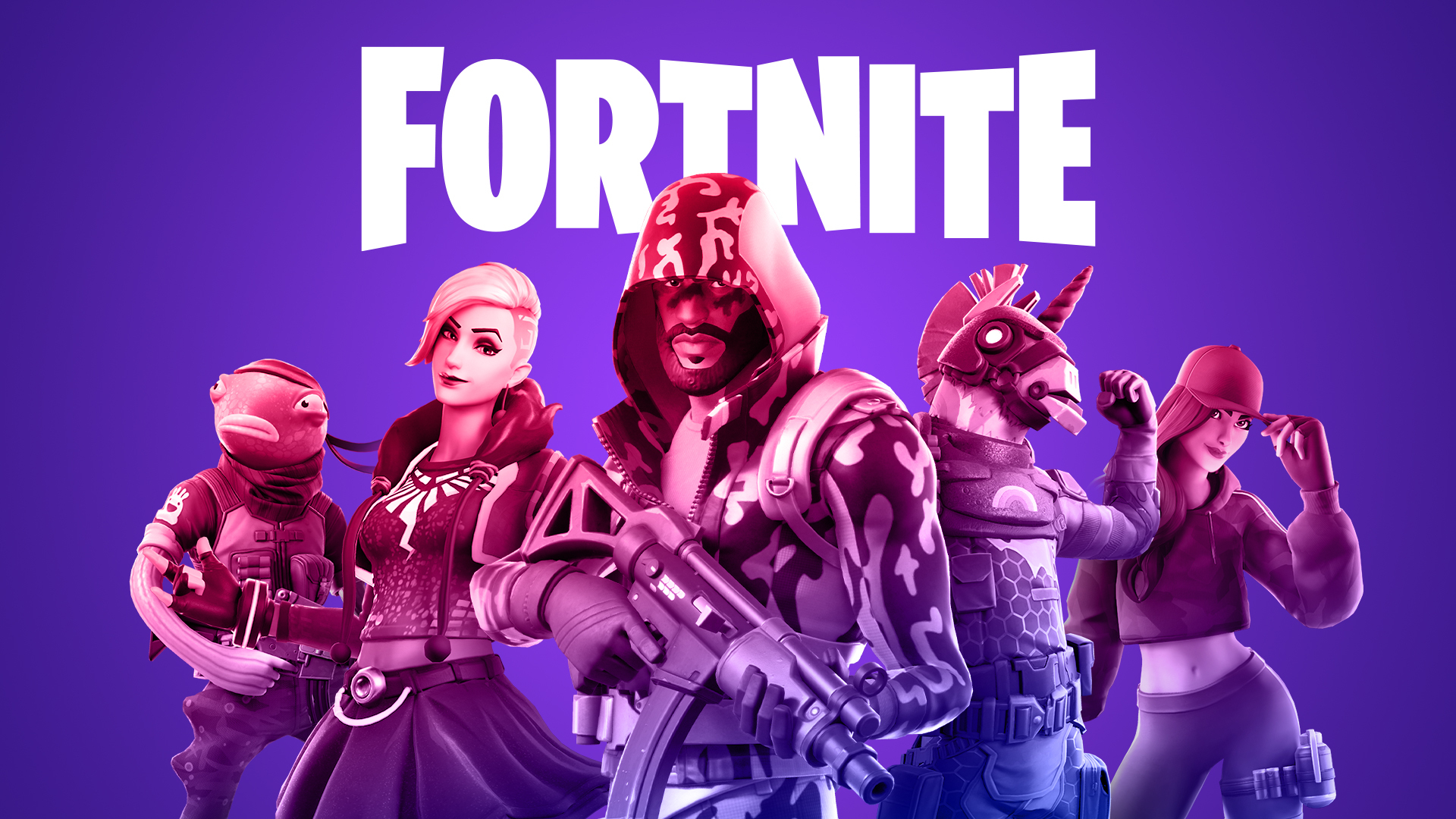FortniteTracker provides in-depth player statistics, transforming how we understand and engage with the Fortnite competitive landscape. This platform meticulously gathers and presents a wealth of data, offering valuable insights into player performance, allowing for detailed comparisons across various metrics. Understanding its functionality, user experience, and impact on the Fortnite community is key to appreciating its role in this dynamic gaming world.
From its core features and data accuracy to its influence on professional play and future development potential, we’ll explore all facets of FortniteTracker. We will delve into its user interface, data reliability, and community impact, comparing it to similar platforms and identifying areas for potential improvement and future innovation.
FortniteTracker Functionality
FortniteTracker is a comprehensive platform dedicated to providing detailed statistics and insights into Fortnite gameplay. It offers a wealth of data for both casual and competitive players, allowing them to track their progress, analyze their performance, and compare themselves to others. The platform’s user-friendly interface makes navigating this extensive data straightforward and accessible.FortniteTracker gathers player statistics directly from the official Fortnite API (where available) and through community contributions.
This data is then processed and presented in a clear and concise manner, offering users a comprehensive overview of their performance across various game modes and metrics. The accuracy of the data depends on the availability of the API and the consistency of data reporting by Epic Games.
Data Points Available on FortniteTracker Profiles
FortniteTracker profiles showcase a wide range of data points, providing a detailed picture of a player’s Fortnite journey. This information includes, but is not limited to, overall statistics like lifetime wins, kills, and K/D ratio. More granular data is also provided, including win rates in specific game modes (like Solo, Duos, Squads, and Zero Build), detailed match history, and performance statistics across different weapons and locations on the map.
Further, leaderboards allow users to compare their performance against friends and other players globally or regionally.
Comparison with Similar Platforms
Several platforms offer similar Fortnite statistics tracking, but FortniteTracker distinguishes itself through its comprehensive data presentation, user-friendly interface, and extensive range of features. While other platforms might focus on specific aspects of the game, FortniteTracker aims to provide a holistic view of a player’s performance. Direct comparisons require specifying the competitors, as features and data offerings vary widely across different platforms.
Feature Comparison Table
| Feature | FortniteTracker | Competitor A (e.g., Tracker Network) | Competitor B (e.g., StatTrack) | Competitor C (e.g., Fortnite Stats) |
|---|---|---|---|---|
| Match History Detail | Extensive match history with detailed stats for each game. | Provides match history, but detail level may vary. | Offers basic match history; detailed stats might require a premium subscription. | Limited match history detail; primarily focuses on overall stats. |
| Weapon Statistics | Detailed statistics on weapon usage and effectiveness. | Limited weapon statistics; may focus on overall kills rather than weapon-specific data. | Offers some weapon stats, but the level of detail might be less comprehensive. | Generally lacks detailed weapon-specific statistics. |
| Leaderboard Integration | Integrates with global and regional leaderboards for easy comparison. | Offers leaderboard integration, but the scope may be limited. | May offer leaderboards, but features might be less robust. | Leaderboard functionality may be basic or absent. |
| Live Match Tracking | May offer live match tracking (depending on API access). | Potentially offers live match tracking, features may vary. | Live match tracking may not be a core feature. | Generally does not provide live match tracking. |
User Experience on FortniteTracker
FortniteTracker aims to provide a comprehensive and user-friendly platform for accessing Fortnite player statistics. However, the effectiveness of this goal hinges heavily on the platform’s user interface and its ease of navigation. This section will evaluate the user experience aspects of FortniteTracker, focusing on interface design, search functionality, and areas for potential improvement.
Interface Design Evaluation
The FortniteTracker interface generally presents a clean and uncluttered design. Information is typically well-organized, with key statistics prominently displayed. The color scheme is generally pleasing and easy on the eyes. However, the layout could benefit from improved visual hierarchy; certain sections could be more clearly differentiated to guide the user’s attention more effectively. For instance, a more distinct visual separation between different player statistics (e.g., lifetime stats versus season stats) would enhance readability.
Additionally, consistent use of whitespace could improve the overall aesthetic appeal and reduce visual clutter, especially on pages displaying extensive data.
Examine how astros hat can boost performance in your area.
Navigation and Finding Specific Player Information
Locating specific player information is generally straightforward. The primary search bar is prominently placed and functions effectively. Entering a player’s username or ID usually yields accurate results quickly. However, navigating through nested menus or accessing less frequently used features could be improved. For example, finding detailed match history might require multiple clicks, which could be streamlined for a more intuitive experience.
A clear visual pathway to less frequently used features, possibly using enhanced visual cues, would greatly benefit the user.
Search and Filtering Options
FortniteTracker offers a functional search feature, allowing users to find players by username or ID. The platform also provides some basic filtering options, although these could be expanded. Currently, filtering options may be limited to basic criteria like platform or game mode. More advanced filtering options, such as filtering by specific statistics (e.g., kill/death ratio above a certain threshold), would significantly enhance the platform’s utility for users seeking specific types of players.
Adding the ability to search for players based on their in-game achievements or rankings would also improve the search capabilities.
Potential UI Improvements for Better Navigation
Several improvements could enhance navigation. Firstly, implementing a more intuitive menu structure with clear visual cues and improved labeling would greatly aid user navigation. Secondly, incorporating a breadcrumb trail would allow users to easily track their location within the site and navigate back to previous sections. Lastly, the use of interactive elements, such as collapsible sections or tooltips, could provide more detailed information without overwhelming the user with excessive text.
Mockup: Improved Search Functionality
To illustrate potential improvements, consider a mockup of the search bar. Instead of a simple text field, the redesigned search bar could incorporate auto-complete suggestions as the user types, displaying usernames and IDs matching the input. Below the search bar, a series of filter options could be displayed, allowing users to filter results by platform (PC, Xbox, PlayStation, Switch, Mobile), game mode (Solo, Duo, Squad, etc.), and even specific statistical ranges (e.g., K/D ratio, wins, etc.).
These filters would be presented with clear labels and intuitive controls, such as sliders for numerical ranges or checkboxes for categorical options. The visual design would be clean and modern, utilizing consistent spacing and typography to ensure readability. The entire search area would be contained within a visually distinct section, perhaps with a subtle background color or border to clearly delineate it from the rest of the page.
FortniteTracker’s Impact on the Fortnite Community
FortniteTracker has significantly altered the landscape of the Fortnite competitive scene, moving beyond a simple statistics website to become an integral tool for players, teams, and the community at large. Its impact spans from enhancing player analysis to shaping perceptions of skill and influencing team dynamics within professional play. This influence is multifaceted and has both positive and negative consequences for the Fortnite ecosystem.FortniteTracker’s Contribution to Competitive FortniteFortniteTracker provides a wealth of data that allows for in-depth analysis of player performance.
This goes beyond simple win rates; it delves into kill-death ratios, average placement, preferred weapons, and even playstyle tendencies. This granular level of information empowers players to understand their strengths and weaknesses, allowing for targeted improvement. For professional teams, this data is invaluable in scouting opponents, identifying potential weaknesses, and developing effective strategies. The platform also facilitates data-driven decision-making regarding roster changes and team composition.
Player Scouting and Team Formation
The platform’s comprehensive player statistics serve as a crucial resource for team managers and scouts. By analyzing a player’s performance across various metrics, teams can identify individuals with the necessary skills and compatibility for their team. This allows for more strategic and data-informed team building, moving away from reliance on reputation alone. For example, a team might prioritize a player with high-average placement even if their kill count is lower, reflecting a preference for strategic gameplay.
Conversely, another team might seek players excelling in aggressive engagements, based on their kill-death ratio. This detailed analysis facilitates the construction of balanced and synergistic teams, optimized for specific competitive environments.
Influence on Community Perception of Player Skill
FortniteTracker has undeniably influenced how the Fortnite community perceives player skill. The platform’s readily available statistics provide a quantifiable measure of performance, often overriding subjective opinions. This has led to a more objective evaluation of players, although it’s important to acknowledge that the platform’s data represents only one aspect of skill – strategic thinking, teamwork, and adaptability are not fully captured by statistics alone.
However, a high ranking on FortniteTracker often translates to increased recognition and influence within the community, regardless of tournament success.
Examples of FortniteTracker Use in Professional Fortnite
Numerous professional Fortnite teams utilize FortniteTracker extensively. During tournament preparation, teams will often analyze their opponents’ statistics to identify their preferred landing spots, most used weapons, and overall playstyle. This allows for the development of counter-strategies and targeted approaches. For example, a team might adjust their landing strategy to avoid a known high-kill zone frequented by an opponent, leveraging FortniteTracker’s data to minimize potential encounters.
Similarly, they might adapt their loadout based on the opponent’s weapon preferences. This proactive approach, fueled by FortniteTracker’s insights, is a common practice among professional teams.
Positive and Negative Impacts of FortniteTracker
The impact of FortniteTracker on the Fortnite community is complex, presenting both advantages and disadvantages.
The following list Artikels some key positive and negative impacts:
- Positive Impacts: Enhanced player analysis and improvement; more objective player evaluation; improved team formation strategies; increased transparency and accountability in competitive play; facilitation of community discussions about player performance and skill.
- Negative Impacts: Overemphasis on statistics over other aspects of skill; potential for data manipulation or misinterpretation; increased pressure and anxiety for players; potential for fostering toxic comparisons and rivalry within the community; focus on quantifiable data can sometimes overshadow the entertainment aspect of the game for viewers and players alike.
Future Development and Potential

FortniteTracker has established itself as a valuable resource for the Fortnite community. However, continuous development is crucial to maintain its relevance and expand its capabilities, catering to both casual and competitive players alike. Future iterations should focus on enhancing data presentation, integrating with other platforms, and introducing innovative features that enrich the user experience.
Several avenues for improvement and expansion exist, focusing on enhanced data visualization, improved functionality, and strategic partnerships.
Potential Feature Additions
FortniteTracker could significantly benefit from adding features that provide more in-depth statistical analysis. For example, a predictive analytics engine could forecast player performance based on historical data, providing insights into potential win rates or future performance based on factors like weapon choice, playstyle, and map knowledge. This would be invaluable for both casual players looking to improve their gameplay and professional players strategizing for tournaments.
Another valuable addition would be more granular data on building mechanics, providing insights into build speed, efficiency, and preferred building materials. This could be visualized through interactive graphs and charts, allowing players to compare their building skills against others. Finally, incorporating detailed match replay analysis, allowing players to review their matches frame-by-frame with overlaid statistics, would provide invaluable feedback for self-improvement.
Integrations with Other Platforms
Strategic partnerships with other Fortnite-related platforms could significantly enhance FortniteTracker’s functionality and reach. Integrating with platforms like Twitch and YouTube would allow for real-time tracking of streamer performance and provide valuable data for viewers. This could involve displaying live stats overlays during streams, showing key performance indicators such as K/D ratio, wins, and damage dealt. Integration with in-game services could enable automatic data import, eliminating the need for manual data entry.
This streamlined process would enhance the accuracy and timeliness of data presented on the platform. Furthermore, partnerships with esports organizations could facilitate the creation of dedicated team dashboards, offering comprehensive performance tracking for professional teams.
Improved Data Presentation
Currently, FortniteTracker presents data effectively, but there is significant room for improvement in data visualization and accessibility. The platform could incorporate interactive dashboards, allowing users to customize their data views and focus on specific metrics. This could involve creating personalized dashboards based on user preferences, highlighting key statistics relevant to their playstyle. Additionally, the platform could adopt more visually appealing and intuitive chart types to make data more digestible.
For instance, using interactive heatmaps to illustrate player movement patterns on the map or employing 3D graphs to represent performance trends over time would make data analysis more engaging and insightful. Finally, incorporating data filtering and sorting options would allow users to quickly find the specific information they need.
Serving Casual and Professional Players, Fortnitetracker
Currently, FortniteTracker caters well to both casual and professional players. However, further development should emphasize tailoring features to specific user needs. For casual players, a focus on simplified data presentation and accessible tutorials would be beneficial. For professional players, features like advanced statistical analysis, team performance tracking, and detailed match replay analysis would be crucial. A tiered subscription model could offer different levels of access, catering to both groups.
A free tier could offer basic statistics, while a premium tier could provide access to advanced features and personalized analytics.
Hypothetical Feature: Personalized Skill-Based Matchmaking Prediction
This feature would leverage machine learning algorithms to predict the likelihood of a player encountering specific skill levels in future matches. It would analyze a player’s historical performance data, including K/D ratio, win rate, placement consistency, and building proficiency, to generate a probability distribution of encountering opponents of various skill levels. This prediction would be presented visually, perhaps as a bar chart showing the likelihood of facing opponents within different skill brackets (e.g., beginner, intermediate, advanced, professional).
The benefits would include allowing players to better gauge the difficulty of their upcoming matches, potentially influencing their decision-making regarding game mode selection or team composition. It would also provide valuable insights into a player’s skill progression over time, helping them track their improvement and identify areas needing further development. For example, a player consistently facing advanced opponents despite improving their stats could use this data to understand that their matchmaking rating is still catching up to their improved skills.
FortniteTracker has undeniably reshaped the Fortnite competitive scene, offering a powerful tool for players, teams, and analysts alike. Its comprehensive data, while not without potential inaccuracies, provides an unparalleled level of insight into player performance. As the platform continues to evolve, incorporating user feedback and exploring new integrations, its influence on the Fortnite community will only continue to grow, fostering greater transparency and understanding within the game’s competitive ecosystem.


